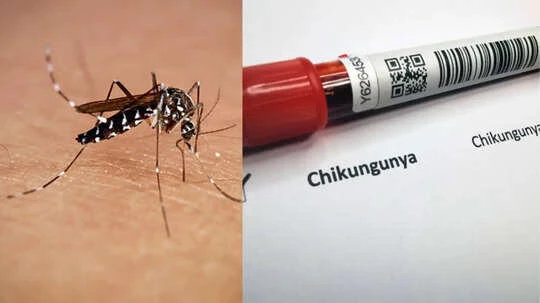There are multiple reported cases of a killer virus, known as chikungunya, that can make your body “fold in on itself” in the United Kingdom, health chiefs have warned.
More than 70 cases of the condition, caused by a mosquito-borne virus, have been reported, causing crippling joint pain across England, Wales, and Northern Ireland – the highest number ever recorded.
According to the data from the UK Health Security Agency, or UKHSA, this is more than double the cases that were reported during the same time period – June-July in 2024. Along with chikungunya, the first cases of the oropouche have also been reported in the UK – all of which were linked to travel from Brazil.
Dubbed ‘sloth fever’, the oropouche virus circulates between primates, sloths, and birds in the wild before it is occasionally passed to humans by midges and mosquitoes.
What is chikungunya?
Chikungunya, or the CHIKV, spreads to people through mosquito bites – specifically, through the Aedes aegypti mosquito and the Aedes albopictus mosquito. Doctors say the infection happens when a mosquito with the virus bites a person. According to experts, the virus leads to a few symptoms like fever and joint pain, which can become extremely severe and even life-threatening. The name “chikungunya” means “bent over” due to the joint pain the illness is known to cause.
While there is no medication to treat chikungunya, the treatment mostly focuses on managing the symptoms. Most people recover from the illness in about one week, but some have lasting joint pain.
Signs and symptoms of chikungunya
Doctors say the symptoms of chikungunya mostly develop between three and seven days after an infected mosquito bites you, even though in some people, they come in as early as two days or as long as 12 days after the bite.
Apart from fever and joint pain, the other most common symptoms of chikungunya include:
- Severe headache
- Muscle pain
- Swelling in your joints
- Rashes
- Fatigue and tiredness
- Nausea
Apart from bad joint pain, those who have chikungunya report pain for months or even years after the infection. Newborns, older adults – 65 years and above – and those with certain health conditions are at high risk for more complications from the virus. These health conditions include:
- Diabetes
- Hypertension or high blood pressure
- Heart disease
How to prevent chikungunya?
Even though there is an FDA-approved vaccine for chikungunya known as IXCHIQ for those over the age of 18, it is still important to limit mosquitoes. A few ways you can do this include:
Using insect repellent
You can use sprays, creams, and even candles and other devices to keep mosquitoes away.
Wear full clothes
Wearing clothes that cover your arms, legs, hands, and feet is important.
Removing sitting water
Make sure there is no standing water around your house, like planters, old tyres, buckets, birdbaths, or any other containers.
Use nets
Always cover the strollers, waggons, and tents with mosquito nets.
Close windows
Close your doors and windows, especially in the evening hours.
Avoid travelling
Do not travel to areas where there is an outbreak.
